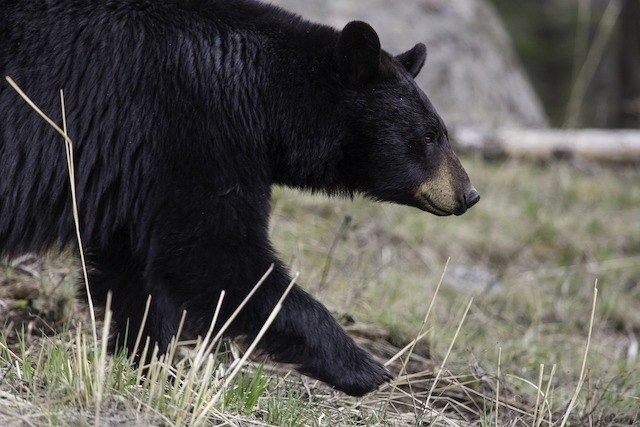Most people are staying indoors and practicing social distancing in and effort to flatten the curve of COVID-19, but the animal population doesn't tend to adhere to advice from health care professionals and government regulations.
The warmer weather is slowly approaching, and with it comes an influx of animals such as bears that are coming out of hibernation in search of food.
Black bears waking up from hibernation are faced with a scarcity of natural food sources, leading them to look for food in garbage cans and bird feeders. The Ministry of Natural Resources and Forestry is providing tips to keep bears away from your neighbourhood this spring.
You can prevent nuisance bears from visiting your home and neighbourhood by:
- Storing garbage in waste containers with tight-fitting lids, and keep garbage stored in a bear-proof environment like a sturdy shed, garage or basement until garbage day.
- Putting out garbage only on the morning of pickup
- Putting away bird feeders for the spring (you can offer birds natural alternatives, such as flowers, nesting boxes and fresh water)
- Cleaning food residue and grease from outdoor barbecue grills after each use
- Keeping pet food indoors
Greater Sudbury city council passed a motion last month to increase garbage bag limits while the province is under a state of emergency, which could lead to increased attractants for bears and other wildlife looking to scavenge for food.
"Regardless of the quantity of garbage, it should be all be treated the same – storing garbage in waste containers with tight-fitting lids, keeping garbage stored in a bear-proof environment like a sturdy shed, garage or basement until garbage day, and putting out garbage only on the morning of pickup," said Derrick Luetchford, MNRF spokesperson.
Staying vigilant at home is one thing that everyone has control over, however there could be some minor changes to the habits of wildlife, due to circumstances that are beyond out control.
Campsites and provincial parks around the province have been closed due to COVID-19, along with many outdoor spaces. The closures of these areas results in a lack of human traffic, be it walking or vehicular, and could have some impacts on wildlife.
"Wildlife will likely carry on as normal, with perhaps more movement through areas where people would normally gather," said Luetchford. "Some of those areas, such as campsites, will have clearings where vegetation (grasses) will grow that might attract deer, geese or bears."
Any change to these animals' feeding habits however will be short-lived.
"A change of habits is unlikely in the long-term, bears and other wildlife will quickly learn to avoid those areas again when the presence of humans returns, provided attractants are managed properly," said Luetchford.
Additionally, an absence of humans will push animals to concentrate more on natural food sources, rather than becoming reliant on scraps that could be left behind by campers and park visitors.
"Any unnatural foods obtained at campgrounds are supplemental to a natural diet and so animals will be able to adapt to the absence of those food sources by concentrating more on natural foods," said Luetchford.
"Wildlife is very adaptable and may enjoy a short reprieve from the presence of humans but are unlikely to develop long term co-habitation in those environments."
